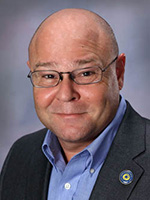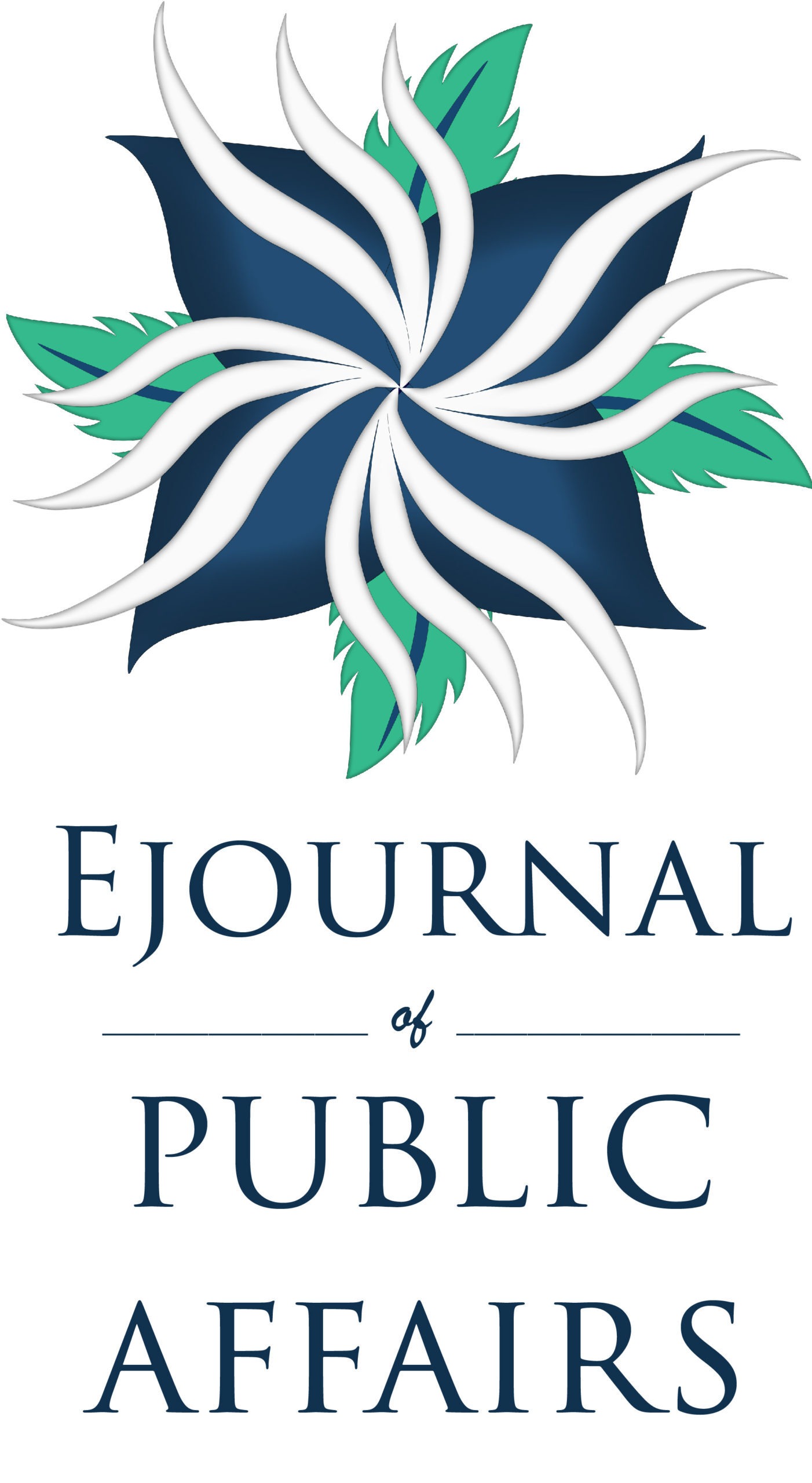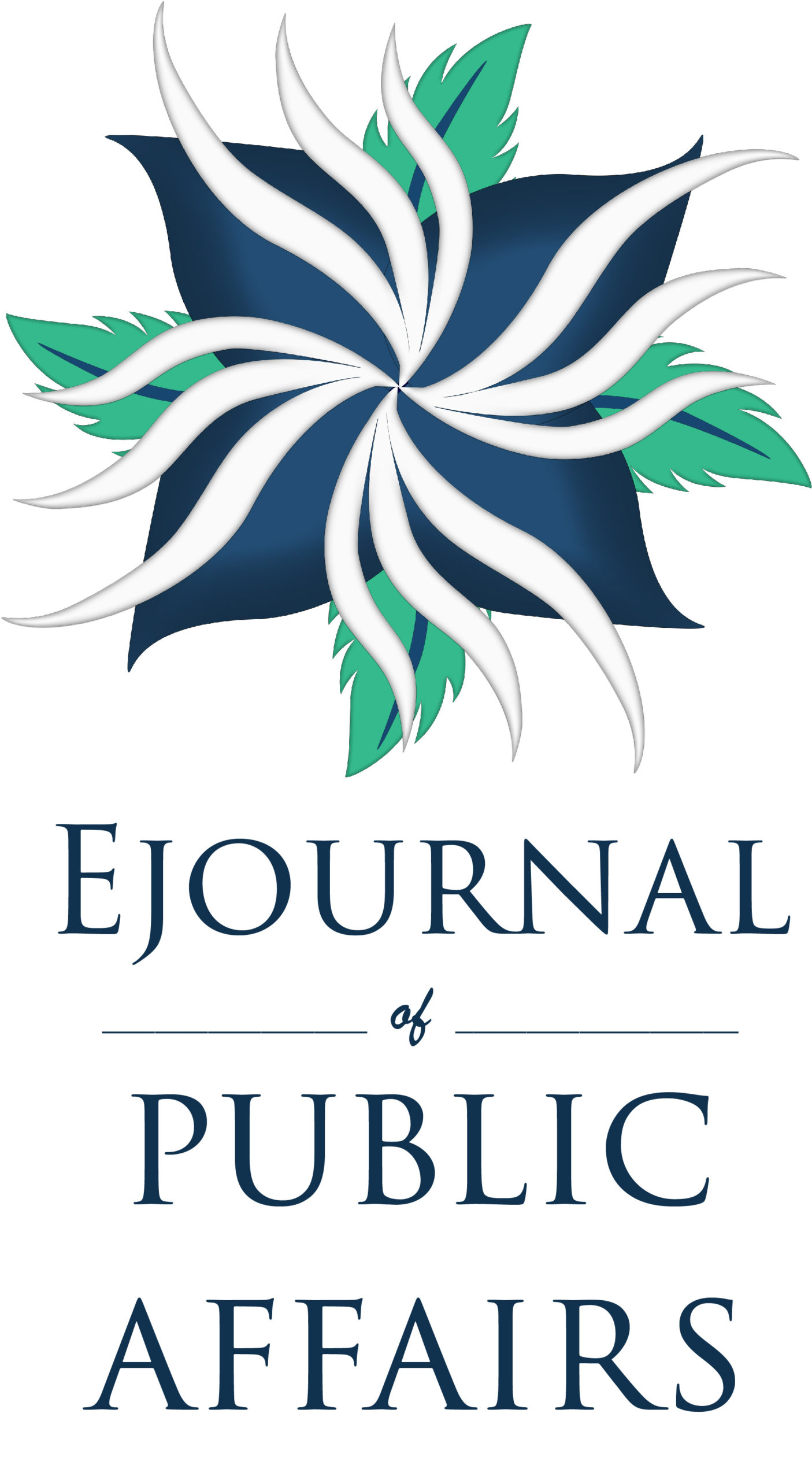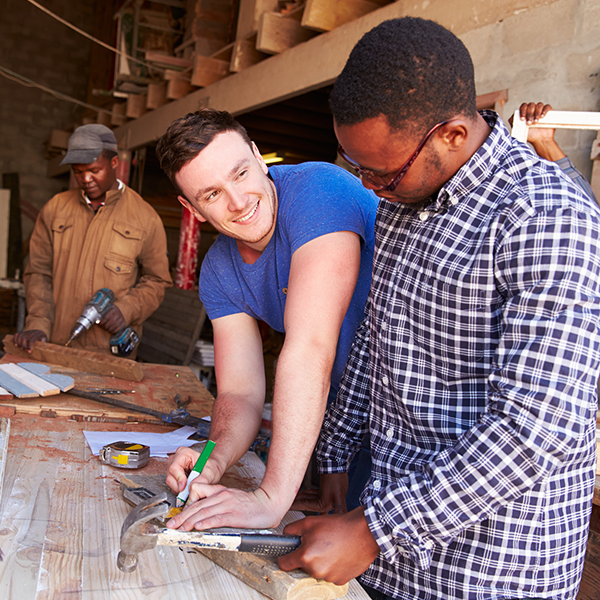By Darrell Hamlin
Fort Hays State University
Abstract
From the early days of my career as an educator, I recall a discussion with students about their service-learning experiences in the community. “What I learned is that I really don’t like poor people,” one student said, without rancor. Chuckles of acknowledgment could be heard around the classroom. As a young teacher trying to learn how to facilitate reflection, I suddenly saw a space open up in the conversation for possibilities. One student’s honesty had allowed all of them to consider, without the anxiety of judgment, what they thought about what was going on inside themselves. Something had happened. That something was civic engagement.
Keywords
social justice education, service learning, living learning community, co-curricular programming, peer mentoring, intergroup dialogue
Author Note
Managing Editor, eJournal of Public Affairs
Center for Civic Leadership
600 Park Street
Hays, KS 67601
[wp-svg-icons icon=”phone” wrap=”i”] (785)259-5911
[wp-svg-icons icon=”envelop” wrap=”i”] dahamlin@fhsu.edu

From the early days of my career as an educator, I recall a discussion with students about their service-learning experiences in the community. “What I learned is that I really don’t like poor people,” one student said, without rancor. Chuckles of acknowledgment could be heard around the classroom. As a young teacher trying to learn how to facilitate reflection, I suddenly saw a space open up in the conversation for possibilities. One student’s honesty had allowed all of them to consider, without the anxiety of judgment, what they thought about what was going on inside themselves. Something had happened. That something was civic engagement.
Civic engagement, a core mission of many colleges and universities, is the primary thread running through this issue of the eJournal. Beyond facts and technical training—the “deliverables” of higher education that seem to be most understood and least contested—lies the transformational outcome of attitudes, the notion that a student should be somehow changed by his or her experience. Purposeful inner growth as a takeaway along with one’s diploma is not just a byproduct; it is a pedagogical construct that can be designed to produce measurable outcomes. In theory and practice, what we do in the world fosters learning that can turn us into more fully developed and effective citizens. The learning part of this dynamic is what all of the authors in this issue examine.
In the first article, “Developing a ‘Sense of Community’: Exploring a Cognitive Component of Civic Engagement,” Tabitha Underwood expands readers’ understanding of the impact of civic engagement initiatives in higher education. Service-learning, volunteer opportunities, and community-based research comprise the three-legged stool of town-gown engagement, and Underwood establishes and documents the commitment from the university to the community through each leg. She suggests that an important but unfocused aspect that emerges when the university engages the community is a psychological sense of connection. When these connective efforts deploy with full understanding of this cognitive outcome, she argues, students gain heightened awareness of two-way impact, a deeper sense of responsibility for place, and a larger purpose around being there. From this perspective, students no longer represent a transient and fungible reality for the community to endure, sometimes exploit, and contend with for available parking space. The psychological sense that seeps into their consciousness changes the way they see themselves in the local context. They not only function accordingly for the duration of their studies, but the investment can lead them to stay, replacing the drain a community faces when its own youth seek their fortunes elsewhere. For students, going off to college becomes a way of finding home; service-learning, in turn, becomes an apprenticeship in the concerned and skilled care for their place in the world. Understanding this cognitive effect, and shaping learning outcomes toward it, amplifies other learning outcomes connected to the academic material assigned by faculty, and it strengthens the roots of social capital that the university plants in its home soil. Of course, if this psychological outcome of belonging, relationship, and attachment is a learning objective, then it must be measured, and Underwood provides insight on the quantitative scales that exist for such research and reporting. Perhaps what is most intriguing about Underwood’s argument is the implication that tired expressions like university community and alma mater can carry new meaning if we direct our approach to community-based learning with expanded purpose.
In “Rethinking Service Learning: Bridging the Gap between Academic and Student Affairs,” Tamara Lynn expands the possibilities of service-learning through a closer examination of co-curricular activities. The article focuses on the learning assessment available through the activities of student clubs, for example, when that learning is captured but un-graded. Lynn’s findings are not simply about the attitudinal impact of co-curricular participation; perhaps more important is the difference such participation can make when reflection—long a pillar of service-learning pedagogy—is not a source of concern to students about the grade they will be assigned if they do not express the right feelings in response to the experience. When structured intentionally, the service experience of participating club members can generate comparison to the attitudes they had before the experience, and those pre/post responses can be compared to the attitudes of club members who did not participate in the service experience. Unlike in the classroom, the measured attitudes are not distorted by the possibilities of student resentment toward “mandatory volunteerism,” since neither the service nor club participation itself is a requirement. In short, co-curricular service experiences can provide valuable insight into the promotion of civic responsibility because the student experience is much like engagement as a citizen in public endeavors—entirely by choice and without dread about what is going to be “on the test.” One criticism of this study might be that the students self-select into the club and its service. Yet, that choice itself reflects an important dimension of civic life: Citizens who engage in the responsibilities of public service are also self-selectors who take on the work and reap the satisfactions of their commitment to something larger than themselves. Democracy is not a spectator sport, as the saying goes. It is driven by those who show up.
What about students who do not live in a democratic society? What kind of differences or similarities are evident in their attitudes toward civic engagement? Those questions are at the heart of the third article, “Civic Intentions and Actions: Exploring Civic Engagement among College Students in Mainland China.” United States-based researchers Jonathan Zaff and Jingtong Pan are joined by colleagues Wei Zhang and Shuangju Zhen working in China. In this study, the team conducted focus groups with Chinese students using frameworks developed in democratic societies. Analysis of the focus-group response guided the development of a survey instrument to assess actions and intentions of civic engagement in students from non-democratic societies. The authors describe their methods for developing the survey and administering it to Chinese students, reporting their results and suggesting the implications for future research. One important point, for example, is the significant difference that living in democratic societies can have on student participation. Students in non-democratic societies, however, face obstacles that necessitate finer distinctions between their civic intentions and their actions. Although the authors identify the limitations to their work, the instrument they developed has great potential for understanding the underlying attitudes toward helping others, financial support, and other ways to engage in civic problem-solving under political conditions that make engagement itself problematic.
The global problems we face, such as climate change, are daunting and over-lapping, so the critical importance of scientific and technological experts would seem to be a no-brainer. Yet even in democratic societies, expertise, particularly from the scientific community, has its own barriers. That problem is central to Scientists, Experts, and Civic Engagement: Walking a Fine Line (edited by Amy Lessen), reviewed in this issue by W. Alexander Wait, himself a biologist. Wait situates the book of essays within the literature on academic civic engagement—when professionals accomplished in their disciplines step outside of their “silos” to communicate with, and even directly assist, those in society affected by a problem. Experts often want to address problems or crises by keeping others informed about relevant insights gained from scholarship and experience. In addition to working with citizens who may be trying to recover from catastrophic circumstances (e.g., Hurricane Katrina), the academic experts who engage with such problems must also engage with the media and policymakers, among others. The core of the dilemma is that experts, scholars, and scientists may have good reason and strong motivations to be part of the public effort to address a daunting problem, yet their engagement could not only be frustrating personally, but also become a matter of professional jeopardy. Even if the media report their opinions and efforts accurately, government and the public may view their involvement with low confidence or even suspicion. Those with expertise who join the fray can be accused of pushing an agenda that is more political or social than scientific. Moreover, their scientific colleagues may undermine their efforts with very different perspectives or accuse them of aiming for commercial or popular success, and their administrative supervisors may not be happy about the attention such controversy attracts. While the scientist may be an expert in her field, the arena of public debate may not provide such sure footing, and a single misstep on social media can end a career or bring humiliation to one’s family. The risks for academic civic engagement are certainly clearer at the outset than are the possibilities for positive impact. Wait’s review is an important expression of a problem, and, as he points out, the book is relevant to a variety of audiences, to which I would add citizens who do not have technical, scientific, or scholarly expertise. We need experts, and such books help all of us bear in mind what is at stake when experts cannot reasonably participate in understanding, let alone solving, the complicated problems that affect us all.
I have served on the editorial board of the eJournal since its inception, and the mission of this publication has always been to connect important ideas and scholarship to points of application in the world beyond the clichés of ivory towers, academic silos, and elbow patches on tweed jackets. Education. Research. Practice. We believe that the affinity of these areas with the public sphere is the essence of civic engagement. President, dean, professor or student—the professional titles and work may be different, but the ultimate role and responsibility is that of a citizen. We are proud to present you this issue of research and commentary, originally brought to us as open submissions, but now connected by a common theme of civic engagement.
Author Biography
 Darrell A. Hamlin is Associate Professor of Criminal Justice and a Senior Fellow at the Center for Civic Leadership at Fort Hays State University. He holds an M.A. and Ph.D. in Political Science from Rutgers University, and a B.A. in American Studies from Baylor University. Hamlin was an AASCU Global Engagement Scholar and the leadership coach for honors students at FHSU. His scholarship, teaching, and service have received awards, and he has been the recipient of grants for research and for educational development. As a writer, educator, consultant and certified leadership coach, he has focused on civic renewal, expanded narratives of public life, and working with individuals and organizations to find their purpose in public life. In addition to serving as Managing Editor, Hamlin serves on the editorial board of the eJournal of Public Affairs. He is a past contributor, and guest editor of the eJournal’s special issues on social entrepreneurs and global education programs.
Darrell A. Hamlin is Associate Professor of Criminal Justice and a Senior Fellow at the Center for Civic Leadership at Fort Hays State University. He holds an M.A. and Ph.D. in Political Science from Rutgers University, and a B.A. in American Studies from Baylor University. Hamlin was an AASCU Global Engagement Scholar and the leadership coach for honors students at FHSU. His scholarship, teaching, and service have received awards, and he has been the recipient of grants for research and for educational development. As a writer, educator, consultant and certified leadership coach, he has focused on civic renewal, expanded narratives of public life, and working with individuals and organizations to find their purpose in public life. In addition to serving as Managing Editor, Hamlin serves on the editorial board of the eJournal of Public Affairs. He is a past contributor, and guest editor of the eJournal’s special issues on social entrepreneurs and global education programs.




